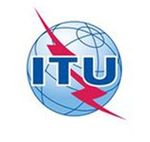Difference between revisions of "ITU-T"
Jump to navigation
Jump to search
| Line 23: | Line 23: | ||
}} | }} | ||
| − | '''ITU-T''' is the telecommunications standardization sector of the [[ITU|International Telecommunications Union]], which is responsible in developing new standards and revising existing standards for the industry from core network functionality and broadband to next-generation services such as Internet Protocol Television ([[IPTV]]).<ref>[http://www.itu.int/net/ITU-T/info/Default.aspx ITU-T In Brief]</ref> The standards developed by ITU-T are called '''"Recommendations"''' since they are not mandatory unless they are incorporated in the national law of a particular government.<ref>[http://www.itu.int/net/ITU-T/info/ | + | '''ITU-T''' is the telecommunications standardization sector of the [[ITU|International Telecommunications Union]], which is responsible in developing new standards and revising existing standards for the industry from core network functionality and broadband to next-generation services such as Internet Protocol Television ([[IPTV]]).<ref>[http://www.itu.int/net/ITU-T/info/Default.aspx ITU-T In Brief]</ref> The standards developed by ITU-T are called '''"Recommendations"''' since they are not mandatory unless they are incorporated in the national law of a particular government. Currently, there are 3000 ITU-T Recommendations available.<ref>[http://www.itu.int/net/ITU-T/info/Default.aspx FAQ]</ref> |
==References== | ==References== | ||
Revision as of 20:54, 5 January 2012
| Type: | International Organization |
| Industry: | ICT |
| Founded: | 1865 |
| Founder(s): | United Nations |
| Headquarters: | Geneva |
| Country: | Switzerland |
| Website: | www.itu.int |
| Facebook: | ITU |
| Twitter: | |
| Key People | |
| Dr. Hamadoun Touré, Secretary-General | |
ITU-T is the telecommunications standardization sector of the International Telecommunications Union, which is responsible in developing new standards and revising existing standards for the industry from core network functionality and broadband to next-generation services such as Internet Protocol Television (IPTV).[1] The standards developed by ITU-T are called "Recommendations" since they are not mandatory unless they are incorporated in the national law of a particular government. Currently, there are 3000 ITU-T Recommendations available.[2]

